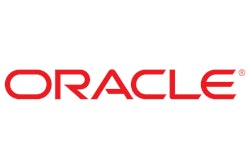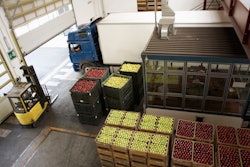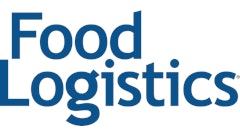
Visibility, traceability and data are prominent trends throughout the supply chain, as partners look to seek greater knowledge in their operations. Cryptocurrency is one method to tap into these trends, despite its reputation for being a form of currency, as its name denotes. Cryptocurrency and blockchain significantly help in authenticity practices and tracking.
“Companies around the world are using blockchain to bring more transparency to supply chains,” says Daniel Polotsky, co-founder and CEO of CoinFlip. “Blockchain technology enables real-time data transparency and immutability, which protects individuals from bad actors, deceitful companies and vulnerabilities caused by human error.”
The usefulness of cryptocurrency in the supply chain is significantly apparent, but it is only the beginning of its potential.
“In the next five years, blockchain will be a standard feature of virtually all supply chain applications, and new use cases will begin emerging in other parts of the business,” says Jai Suri, vice president, IoT and blockchain applications development, Oracle. “We already see many different companies investing in blockchain companies or partnering with blockchain-centric organizations. There are also numerous consortia being set up to facilitate blockchain networks for financial transactions, which is a more complex use case, or to validate employment and education credentials. We are still in the early stages of blockchain adoption.
“However, in the coming years we’ll see many applications of blockchain in supply chain and financial contracts and some traction in human resources,” adds Suri.
Blockchain can be used for a variety of authentication processes such as detailing product origins, which can be as specific to include where materials have been sourced from and their conditions. It is even possible for companies to trace the authenticity of something like the results of a Coronavirus disease (COVID-19) vaccine.
“The potential of detailed quality control records and origin information has the potential to dramatically reduce costs and preserve a company’s reputation when it comes to product recalls,” Suri continues. “Furthermore, the temper-proof shared ledger can ensure counterfeits are not added between production and the customer. As smart contracts become the norm, blockchain will also improve the speed and efficiency of transactions and enable more automated processes in the supply chain.”
Cryptocurrency is also used to improve monetization and revenue.
“Companies are exploring blockchain in a number of creative ways,” says Denise McCurdy, vice president of blockchain governance at Government Blockchain Association. “Some are looking internally for auditing purposes. Others are looking to monetize assets that we didn’t think to monetize to assign ‘slivers’ of new revenue to existing business models. And, of course, there is the supply chain workhorse use case - making sure that everyone in the ecosystem sees the secure chain of information.
“This improved visibility and traceability can reduce counterfeits and losses from the gray market; prove compliance for auditing purposes; and of course, drive inefficiencies out of entire industries. If everyone knows the ground rules,” she adds.
Lack of knowledge
However, because of cryptocurrency’s newness, there can be drawbacks.
“In the real world, firms will need a lot of knowledgeable expertise, well versed in blockchain technology, that can assist with the nuances and unknowns,” McCurdy adds. “These skills are currently in short supply. As an example, from a legal perspective, firms that participate in a blockchain ecosystem need to understand the legal and regulatory requirements are of their ecosystem partners. These can include anti-compete rules, food safety laws, privacy laws such as HIPPA and GDPR and other fiduciary requirements, such as Sarbanes-Oxley Act.
“The interoperability of blockchains and their attendant concerns are of interest in the current environment,” she says. “We know blockchain works; we’ve had crypto for 10-plus years. But, how well do blockchains work together?
“Additionally, there is an underexplored socio-technological disconnect between the amount of change and disruption that blockchain may cause and the (lack of) importance placed on people concerns, such as a lack of trained resources, significant process changes and the perception that entire departments may change to deploy blockchain. These are considerations that move beyond the technical realm and into the ‘how do we actually work at the production level for all of our business units’ to make the darn thing work.”
Despite this lack of knowledge, cryptocurrency has been booming this past year in the supply chain and making a stance poised for significant future growth. COVID-19 has sped up adoption of cryptocurrency in the supply chain even more so, like many other trends. While these trends were already oncoming, the Coronavirus pandemic has quickened its enactment.
“Having access to real-time data on the origin of products and their management through the supply chain has become crucial during the COVID-19 crisis,” Polostky says. “During a global crisis, it's extremely important that supply chains are running smoothly and efficiently, especially when it means distributing life-saving products like PPE. Blockchain technology allows for the real-time sharing of important information, including location tracking and product indexing, so that we can ensure consumers get essential products when they need them.”
The future of supply chains lies with blockchain, as consumers and partners seek greater authenticity. The use of cryptocurrency will ensure legitimacy throughout the chain, especially after COVID-19 pushed it forward this past year.




















